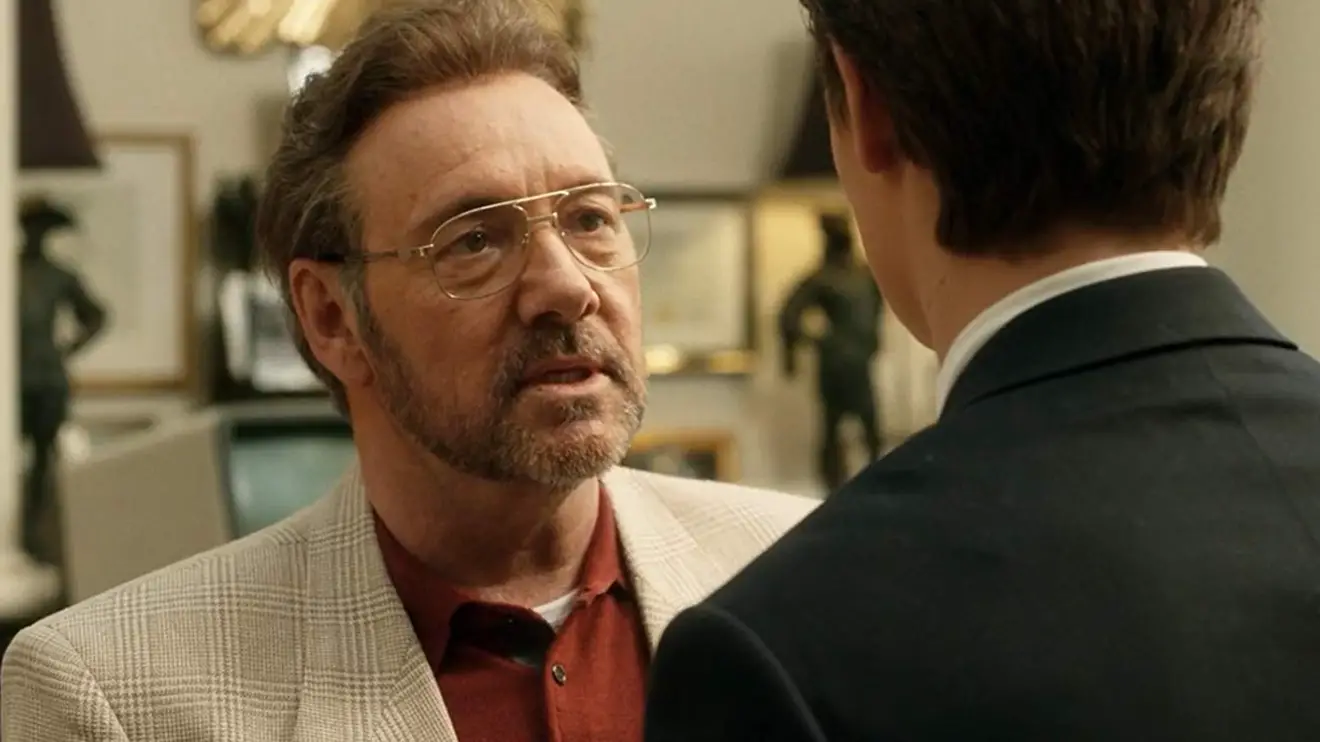The rise of the #MeToo movement brought national awareness to the rampant sexual misconduct problem in Hollywood, leaving many once-favored actors, directors and producers to be shunned and removed from the public eye. One would hope that these people would remain outside of the popular hemisphere, left to deal with the consequences of their irredeemable actions.
Unfortunately, it seems ex-beloved actor Kevin Spacey, now accused by more than a dozen men of sexual assault, has somehow sprung himself back into the limelight with the release of his newest film, ironically titled “Billionaire Boys Club.”
The movie, directed by James Cox and based off true events, opens in the U.S. on Aug. 17. The plot, which has been universally panned by critics, follows a group of wealthy boys led by Joe Hunt (Ansel Elgort) as they come up with a plan to get rich quickly. Their scheme turns sour when they end up murdering con man Ron Levin (Spacey).
https://www.youtube.com/watch?v=XkdZzOM2VGA
In case you need some reminding, Spacey has been under fire for a slew of claims, such as sexual assault, harassment and rape. The claims come from several men, five of which were minors at the time of the alleged offenses. Just this past July, three more men came forward to Scotland Yard, accusing Spacey of sexual assault.
The surge of victims stepping forward against the “American Beauty” actor started after “Star Trek: Discovery” star Anthony Rapp spoke out last October, claiming the actor made sexual advances toward him at a party in the ’80s. At the time, Rapp was only 14-years-old.
Spacey denied these claims, offering Rapp “the sincerest apology for what would have been deeply inappropriate drunken behavior.” He instead used the weighted accusations against him as an opportunity to dismiss them, and then formally come out as gay. Many of the industry’s LGBT members criticized the Oscar-winning actor’s ploy, including Billy Eichner and Wanda Sykes, for using the act of “coming out” as a distraction and an excuse for any ill-advised behavior. People also argued that Spacey’s apology wrongfully associated being gay with sexual assault.
In “Billionaire Boys Club,” Spacey’s character, like many he has played before, is a sleazy guy who believes he can evade what is right in order to get away with what he wants. IndieWire wrote, “Spacey sags into the kind of seductive guru he used to play on autopilot before a string of sexual assault accusations derailed his career.”
Hence, the role and the overall release of the film is, without a doubt, grossly timed, with the Hollywood Reporter calling it “particularly cringe-worthy.” Even more, the same publication notes that in one scene, “Spacey’s character leers at the adolescent-looking Elgort,” while talking about “salami-sized genitals.” It’s almost like Spacey isn’t acting at all, but rather playing himself.
It is questionable how and why the movie even got a release. Soon after his allegations made their way into headlines, those working with Spacey dropped him almost instantly. He was removed from the “House of Cards” cast, in which he gave a critically acclaimed performance as politician Francis Underwood. The rest of his projects, such as Netflix’s Gore Vidal biopic “Gore” and most notably his role as J. Paul Getty in Ridley Scott’s “All the Money in the World” — in which all his scenes were cut and replaced by Christopher Plummer — fell through as well.
Granted, “Billionaire Boys Club” was filmed 2.5 years ago, before any allegations against Spacey surfaced. Vertical Entertainment, the film’s U.S. distributor, released a statement that reads, “This is neither an easy nor insensitive decision to release this film in theaters, but we believe in giving the cast, as well as hundreds of crew members who worked hard on the film, the chance to see their final product reach audiences.”
Their goal is for audiences to not let Spacey’s past “tarnish the release” of the film; however, this seems almost obviously implausible, even verging on naive. The unsettling irony behind the film should have been enough for the producers to cancel its release. It was simply impossible for the movie to be distributed without Spacey’s sinister actions being brought back into the forefronts of the viewers’ minds.
Instead of the actor remaining justifiably alienated from the public and, therefore, from his victims, Spacey has crawled his way back into the realm of interest. There is a good chance that those behind the film aimed to profit off the “Baby Driver” actor’s controversy. Either way, the fact that someone would want to keep connections with an alleged serial assaulter rather than cut ties with them completely is certainly unsettling.
As a comparison, Netflix’s cancellation of “Gore” cost them a whopping $39 million and Ridley Scott’s reshoot of “All the Money in the World” cost over $10 million. Regardless, both projects stood by their refusal to work with Spacey, with Scott stating, “My decision was almost immediate. I said: ‘We need to re-do this.’”
The film, which currently holds a 17 percent on Rotten Tomatoes, is definitely not worth the controversy it has stirred up. John DeFore of The Hollywood Reporter calls it, “A derivative bore, all popped collars, douchey bros and hand-me-down psychology.” Mick LaSalle of the San Francisco Chronicle adds, “As Hunt’s life unravels, so does the movie.” At most, all it has done is bring Spacey back into conversation, when he should have been left to fade as a distant, dark memory of one of Hollywood’s most corrupt secrets.

















